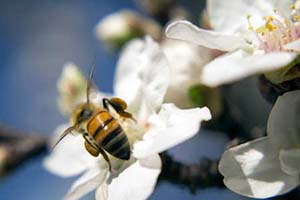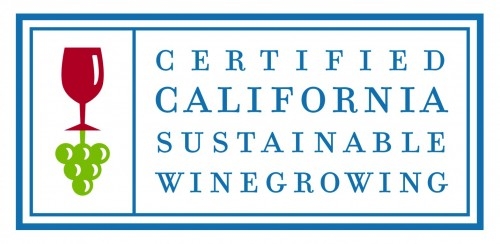Certified Sustainable
We are very proud that in 2006, Ramona Ranch was recognized by the National Wildlife Federation (NWF) as a Certified Wildlife Habitat®. In 2017, we passed our first on-site audit by the CA Wine Institute and are a Certified Sustainable Vineyard and Winery, the only winery in San Diego county to have that distinction.
The NWF is America’s largest wildlife conservation and education organization. Following the guidelines set forth in their Garden for Wildlife program, Ramona Ranch has created a vital sustainable habitat for birds, butterflies, frogs and other wildlife by providing essential elements needed by all wildlife – natural food sources, clean water, natural cover and places to raise young.

This certification also makes Ramona Ranch’s Certified Wildlife Habitat® part of the Million Pollinator Garden Challenge, a national effort to restore critical habitat for pollinators.
As an integral part of our efforts, the vineyards at the ranch carefully managed, with the environment first. No herbicides are ever used at Ramona Ranch. We compost all organic matter, drip irrigate to save water, use native plants in our landscaping, and generate our own electricity via both wind and solar. Planting insect, bird and butterfly zones, and installing owl boxes makes our ranch more inviting to wildlife, and gives our guests a wonderful, natural environment to enjoy while saving us time in the long run.

Certified California Sustainable Winegrowing
Introduced in 2010, Certified California Sustainable Winegrowing is a certification program providing third-party verification that a winery or vineyard has adopted and implemented stringent sustainable winegrowing standards based on the Industry’s Code of 200+ best practices, and has committed to continuous improvement in those areas. After meeting 60 vineyard and 41 winery criteria, companies use self-assessment data to determine what areas need to be improved, to focus their resources on practices that will make the most difference for their sustainability goals, and to continually retain certification year after year. Vineyards and wineries must also meet an overall score threshold, and measure and track metrics for water, energy, greenhouse gases and nitrogen. Vineyards must also comply with the restrictions on crop-protection materials. An annual third-party audit is required to earn and maintain certification status
Nature provides beauty, life and energy, which is why sustainability is such an important part of our lives and business.
